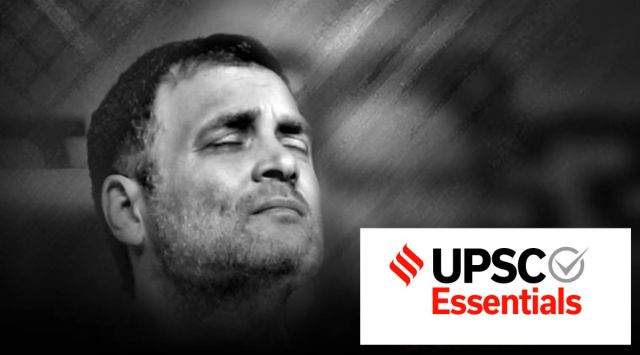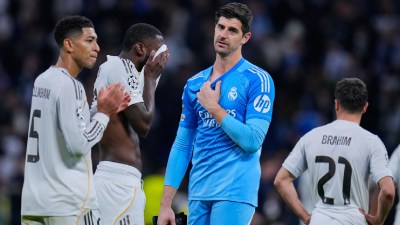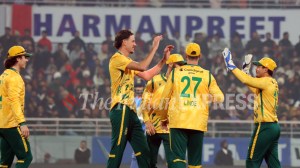— Coming more than a year after Russia launched its invasion of Ukraine, the meeting was watched closely by Western officials for any indications of how far China may be willing to go to act as a mediator in the conflict. Chinese officials framed the meeting partly as a mission to promote constructive talks between Russia and Ukraine, even though US officials have been skeptical of Xi’s recent efforts to become a global peacemaker.
KEY TAKEAWAYS
According to New York Times:
Are China and Russia allies?
— China and Russia are not formal allies, meaning they have not committed to defend each other with military support. But the two countries are close strategic partners, a relationship that deepened during the war in Ukraine as Russia became increasingly isolated from many other countries.
— Chinese officials have said the current relationship is at a “historic high.” The partnership is fueled by a shared goal of trying to weaken U.S. power and influence.
— The relationship between China and Russia has not always been so warm. The two sides were fierce adversaries in the 1960s and clashed in 1969 over disputed territory along their border, raising fears at the time of a nuclear showdown between the two countries.
— The two countries have also been competing for influence in Central Asia, a region the Kremlin has long seen as its turf but is becoming increasingly important to China’s geopolitical and economic ambitions. China is building more railroads, highways and energy pipelines in former Soviet republics such as Kazakhstan and Uzbekistan, which still rely on Russia as a crucial security partner.
What is the economic relationship between Russia and China?
— Economic ties between China and Russia have strengthened significantly since Russia’s first invasion of Ukraine in 2014, when it annexed Crimea. At the time, China helped Russia evade the sanctions imposed by the Obama administration that were supposed to cut off Russia’s access to global markets.
— In the wake of harsher sanctions against Russia following the start of the Ukraine war last year, China has helped to supply many of the products that Russia previously purchased from Western-allied countries, including computer chips, smartphones and raw materials needed for military equipment. Total trade between Russia and China surged last year.
What does Putin want from China?
— Putin needs China to help bolster his economy, which has been battered by Western sanctions. For the Russian leader, China has increasingly become a lifeline for investment and trade. After Western countries restricted their purchases of Russian crude oil and natural gas last year, China helped offset the decline by buying more energy from Russia.
— At the start of the Ukraine war, Russia asked China for military equipment and economic assistance, according to U.S. officials. U.S. officials have recently said that China is considering giving weapons to Russia for use in Ukraine, a claim that China has denied.
— China has refrained from condemning Russia’s invasion of Ukraine, even though China’s foreign policy is rooted around the principles of sovereignty and territorial integrity. Although China has portrayed itself as a neutral party in the Ukraine war, it has endorsed Russian narratives, blaming the U.S. and NATO for starting the conflict.
— But China has also hesitated to put its full backing behind Russia. The turmoil and instability stemming from the war could threaten China’s growth and complicate its efforts to strengthen its economic ties around the world.
— Last September, after Putin and Xi met in person, Putin acknowledged that China had expressed “questions and concerns” about the war in Ukraine.
What does Xi want from Russia?
— Xi wants Putin to join him as a like-minded ally in confronting U.S. and Western dominance.
— In an article published in a Russian newspaper Monday before the visit, Xi said China and Russia needed to cooperate to overcome challenges to their security, including “damaging acts of hegemony, domination and bullying.”
— Xi has pursued a harder stance against what he calls a U.S. effort to contain China’s rise, portraying China as a nation besieged — much as Putin has done in speeches to Russians. Xi has urged Chinese industries to reduce their reliance on Western technology and hailed China’s growth as proof that it does not need to adopt Western political values.
— China has been buying more advanced weapons from Russia to modernize its military, and the two nations have increased their joint military exercises. Last year, as President Joe Biden was visiting Tokyo, China and Russia sent bombers over the seas in northeast Asia as a show of force.
Does China want the war to end? Does it have influence on Putin enough to get him to stop?
— Beijing is unlikely to want an end to the Russian war in Ukraine for several reasons.
— First, being tied down in Ukraine has the effect of weakening Russia militarily, economically, and politically. This is a vacuum that China can step into, especially in Eurasia — in September last year, for example, China offered security guarantees to Kazakhstan during Xi’s visit there, and made Belarus its second “all-weather strategic partner” after Pakistan.
— Second, a prolonged conflict in Ukraine means that the West’s, and in particular the United States’, attention and resources are diverted — and this the Chinese see as a good thing. From Beijing’s point of view, it weakens the focus on and reduces the resources for any potential Western intervention on China’s eastern seaboard, particularly in the scenario of a crisis over Taiwan.
— Third, a continuing crisis in Ukraine offers opportunities for international messaging about the relative rise in Chinese power vis-à-vis both the Russians and Americans. Clearly, Russia’s regional and global stature has taken a hit from what it has done and what it is unable to do — that is, to prosecute a quick end to the conflict.
— Meanwhile, just as China’s role in helping Iran and Saudi Arabia restore diplomatic ties was intended to showcase Beijing’s rising influence and the decline of the US in the Middle Eastern region, the inability of the Ukrainians to expel the Russian invaders despite Western support can be used to send a signal in Europe. There is, therefore, little reason for Xi to try and persuade Putin to stop the war.
— If anything, China’s political support at forums such as the United Nations and elsewhere has been crucial to Russia building a case for the legitimacy of the war. We might even see over time indirect Chinese military support to Russia. The agreement between Belarus and China earlier this year has sections on industrial production, joint R&D and defence cooperation — which could well allow for potential weapons production and transhipment to Russia.
Are the US and China, too, in talks over the war?
— There is no doubt that Washington and Beijing have a conversation ongoing about the conflict in Ukraine, but it is unlikely that they can come to any sort of meeting ground in the foreseeable future.
— The two nations have fundamentally different interests on this and other issues, and more often than not, these are opposing interests. These differences are ideological and deep-rooted, and the recent American shooting down of a Chinese surveillance balloon in US airspace suggests that tensions in the US-China relationship are only set to grow.
— Even if their interests were to align temporarily, Xi has too close a relationship with Putin — and sees greater value in a Russian bulwark against the West — to try and actively promote Washington’s brief. It is also not clear what the Americans could offer China in return.
How does the war affect China?
— There is no doubt that the war brings costs to China — not just economic ones but political ones, too, especially from the major Western nations that are also big markets for Chinese manufacturing and sources for high technology.
— But these are costs that the Chinese economy appears large enough to bear, especially when it is able to procure oil at deep discounts from Russia, and has had its own version of technological self-reliance programmes underway for decades. China is also able to use its economic influence to carry out trade in its own currency with Russia and other sanctioned regimes — Iran, for example.
— But the impact of the Russia-Ukraine conflict on China is not just external and economic but also internal. The conflict confirms Xi’s claims in recent times in several important domestic documents and speeches that China “is facing global changes of a magnitude not seen in a century”. Calling attention to a challenging external environment is Xi’s way of reminding the Chinese people of the perils of “[v]arious ‘black swan’ and ‘gray rhino’ events” and the necessity of supporting the ruling Communist Party and Xi himself to help them deal with these challenges.
— An unstable external environment and its economic consequences can also be used to justify both China’s current economic difficulties in the wake of the pandemic as well as Xi’s continuing hold over the reins of power as being essential for national stability and recovery.
What are the challenges for India?
According to Express View on President’s Xi’s Moscow visit:
— The China-Russia tango presents two challenges for India. Delhi’s exercise of “strategic autonomy” over the last one year has been premised on its long-standing partnership with Russia, but Moscow’s cosying up with Beijing is certainly putting pressure on that relationship. Putin and Xi have condemned the Quad grouping of which India is a part. Moscow’s positions on India’s LAC troubles with China fall well below what Delhi would like to hear from a friend, and it is not clear how that can be changed.
— Secondly, internationally, the success of India’s presidency of the G20 will be measured on the outcome document, which needs the co-operation of both Moscow and Beijing. As was evident from the meetings of the G20 finance and foreign ministers this month, that could prove difficult.
(Sources: Power play in Moscow: What China hopes to gain from Xi’s meeting with Putin by Jabin T Jacob; Xi Jinping-Putin meet: Why China and Russia are closer than ever by New York Times; Express View on President’s Xi’s Moscow visit: China-Russia tango is a challenge for India)
Point to ponder: China-Russia tango is a challenge for India. How?
2. MCQ:
China, Russia and India together are not a part of:
(a) Shanghai Cooperation Organisation
(b) G20
(c) Asian Development Bank
(d) BRICS
IPCC’s Synthesis Report
Why in news?
— The world is on track to breach the 1.5 degree Celsius global warming limit by the 2030s, which would cause irrevocable damage to the planet’s ecosystem and severely impact humans and other living beings, the Intergovernmental Panel on Climate Change (IPCC), an UN-backed body of world’s leading climate scientists, warned on Monday (March 20).
— Releasing the final report, known as the Synthesis Report, of its sixth assessment cycle, IPCC added that there is still a chance to avert this mass-scale destruction, but it would require an enormous global effort to slash greenhouse gas emissions in half by 2030 and completely phase them out by 2050.
— Earth has already warmed an average of 1.1 degrees Celsius since the industrial age while humans have been responsible for virtually all global heating over the last 200 years.
— Speaking to the media during the report’s release, United Nations Secretary-General Antonio Guterres said, “Humanity is on thin ice — and that ice is melting fast.” He added, “Our world needs climate action on all fronts — everything, everywhere, all at once.”
— The Synthesis Report has come after a week-long negotiation with the approval of 195 countries. It is essentially a non-technical summary of the previous reports, which were released between 2018 and 2022, and sets out possible policies and measures that might help stave off the worst consequences of climate change.
KEY TAKEAWAYS
Alind Chauhan Explains:
— The new report lays out the present impact of soaring global temperature and imminent ramifications in case the planet continues to get warmer.
— Due to the current global warming levels, almost every region across the planet is already experiencing climate extremes, an uptick in deaths due to heatwaves, reduced food and water security and damage to ecosystems, causing mass extinction of species on land and in the ocean.
— Moreover, “vulnerable communities who have historically contributed the least to climate change are being disproportionately affected,” the report said. It added that more than three billion people live in areas that are “highly vulnerable” to climate change — people living in these regions were “15 times more likely to die from floods, droughts and storms between 2010-2020 than those living in regions with very low vulnerability”.
— Things can get worse if the world crosses the 1.5 degree Celsius temperature limit, a target agreed to in the Paris Agreement. This would result in an unpredictable global water cycle, drought and fires, devastating floods, extreme sea level events and more intense tropical cyclones.
— According to the scientists involved in writing the report, India would also face these dire consequences of global warming and needs to take immediate action to curb the temperature.
— Given the present scale, scope and pace of global action, it’s most likely that Earth would overshoot this critical warming threshold somewhere in the following decade. The report categorically states that despite some advancements towards curtailing the greenhouse gas emissions into the atmosphere, “adaptation gaps exist, and will continue to grow at current rates of implementation.” Some of the barriers to adaptation have been limited resources, lack of private sector and citizen engagement, low climate literacy, lack of political commitment and low sense of urgency.
— But there is still hope of arresting the rising global temperature within the 1.5 degree Celsius limit. In his address to the media, Guterres said, “Today’s IPCC report is a how-to guide to defuse the climate time-bomb. It is a survival guide for humanity. As it shows, the 1.5-degree limit is achievable. But it will take a quantum leap in climate action. This report is a clarion call to massively fast-track climate efforts by every country and every sector and on every timeframe.”
— The Synthesis Report underlines the requirement of climate-resilient development, which is finding ways to adapt to climate change or reduce greenhouse gas emissions that provide wider benefits. It further mentions that to be effective, these measures must be rooted in our diverse values, world views and knowledge around the globe — including Indigenous knowledge.
— Apart from highlighting the urgent need of limiting the use of fossil fuel, the report urges governments and policymakers to increase finance to climate investments, expand the clean energy infrastructure, reduce nitrogen pollution from agriculture, curtail food waste, adopt measures to make it easier for people to lead low-carbon lifestyles and much more.
(Source: IPCC releases its Synthesis Report: What are the key takeaways by Alind Chauhan)
Point to ponder: IPCC report warns global warming will breach critical threshold by 2030. Discuss.
3. MCQ:
In the context of mitigating the impending global warming due to anthropogenic emissions of carbon dioxide, which of the following can be the potential sites for carbon sequestration?
1. Abandoned and uneconomic coal seams
2. Depleted oil and gas reservoirs
3. Subterranean deep saline formalities
Select the correct answer using the codes given below:
(a) 1 and 2 only
(b) 3 only
(c) 1 and 3 only
(d) 1, 2 and 3
The High Seas Treaty
Why in news?
— Two weeks ago, negotiators from almost every country in the world finalised a new global treaty meant for the conservation and sustainable use of biological resources in the high seas. In terms of its significance and impact, this treaty is being compared to the 2015 Paris Agreement on climate change. High seas are open ocean areas that are outside the jurisdiction of any country — the reason why the treaty is commonly known as the agreement on “biodiversity beyond national jurisdictions”, or BBNJ.
— Once the treaty becomes international law after ratification by member countries, it will regulate all human activities in the high seas with the objective of ensuring that ocean resources, including biodiversity, are utilised in a sustainable manner, and their benefits are shared equitably among countries.
KEY TAKEAWAYS
Amitabh Sinha Explains:
The laws of the seas
— The high seas comprise 64 per cent of the ocean surface, and about 43 per cent of the Earth. These areas are home to about 2.2 million marine species and up to a trillion different kinds of microorganisms, according to the Deep Ocean Stewardship Initiative (DOSI), a network of global experts on oceans.
— A number of regional, multilateral and global legal frameworks exist to govern the activities in the oceans, the most important of which is the United Nations Convention on the Laws of the Sea (UNCLOS), a 1982 agreement that has near-universal acceptance.
— Among other things, UNCLOS defined the rights and duties of countries in the oceans, the extent of ocean areas over which countries could claim sovereignty, and the legal status of marine resources. It also specified a set of general rules for a range of activities in the oceans including navigation, scientific research, and deep-sea mining.
— The treaty established exclusive economic zones (EEZ), ocean areas up to 200 nautical miles (370 km) from the coastline, where a country would have exclusive rights over all economic resources such as fish, oil, minerals, and gas. The high seas are the areas beyond the EEZ of any country.
— The UNCLOS came into being much before climate change and biodiversity became major global concerns. Though it asks countries to protect the ocean ecology and conserve its resources, it does not provide the specific mechanisms or processes to do so. Climate change is already influencing, and is being influenced by, ocean systems, and is exacerbating the pressures on marine biodiversity from unregulated human activities. It is these specific challenges — a combination of climate change, biodiversity, and pollution — that the High Seas Treaty seeks to address.
— The High Seas Treaty will work as an implementation agreement under the UNCLOS, much like the Paris Agreement works under the UN Framework Convention on Climate Change (UNFCCC).
What are the key provisions of Treaty?
— The High Seas Treaty has four main objectives:
* Demarcation of marine protected areas (MPAs), rather like there are protected forests or wildlife areas;
* Sustainable use of marine genetic resources and equitable sharing of benefits arising from them;
* Initiation of the practice of environmental impact assessments for all major activities in the oceans; and
* Capacity building and technology transfer.
MARINE-PROTECTED AREAS: MPAs are where ocean systems, including biodiversity, are under stress, either due to human activities or climate change. These can be called the national parks or wildlife reserves of the oceans. Activities in these areas will be highly regulated, and conservation efforts similar to what happens in forest or wildlife zones, will be undertaken. Only about 1.44 per cent of high seas are currently protected, according to the International Union for Conservation of Nature (IUCN).
In December last year, at the meeting of the Convention on Biodiversity (CBD) in Montreal, Canada, countries had agreed to put at least 30 per cent of degraded coastal and marine ecosystems under effective restoration by 2030. MPAs can become an important vehicle to achieve that goal.
MARINE GENETIC RESOURCES: Oceans host very diverse life forms, many of which can be useful for human beings in areas like drug development. Genetic information from these organisms is already being extracted, and their benefits are being investigated. The treaty seeks to ensure that any benefits arising out of such efforts, including monetary gains, are free from strong intellectual property rights controls, and are equitably shared amongst all. The knowledge generated from such expeditions are also supposed to remain openly accessible to all.
ENVIRONMENT IMPACT ASSESSMENTS: The high seas are international waters that are open for use by all countries. Under the provisions of the new treaty, commercial or other activities that can have significant impact on the marine ecosystem, or can cause large-scale pollution in the oceans, would require an environmental impact assessment to be done, and the results of this exercise have to be shared with the international community.
CAPACITY BUILDING AND TECHNOLOGY TRANSFER: The treaty lays a lot of emphasis on this, mainly because a large number of countries, especially small island states and landlocked nations, do not have the resources or the expertise to meaningfully participate in the conservation efforts, or to take benefits from the useful exploitation of marine resources. At the same time, the obligations put on them by the Treaty, to carry out environmental impact assessments for example, can be an additional burden.
Why is it difficult road ahead for the treaty?
— The treaty is the result of more than 20 years of protracted negotiations. The details of all the major contentious provisions, including environmental impact assessments, sharing of benefits from genetic resources, and mobilisation of funds for conservation activities, are still to be worked out. Many issues remain unaddressed, including the mechanisms for policing the protected areas, the fate of the projects that are assessed to be heavily polluting, and the resolution of disputes.
— The process of ratification is not expected to be easy. It took UNCLOS 12 years to become international law because the necessary number of ratifications was not reached. The Kyoto Protocol, the precursor to the Paris Agreement, also took eight years to come into effect.
(Source: The High Seas Treaty: Key provisions, and the challenges it faces by Amitabh Sinha)
Point to ponder: World Meteorological report underlines that challenges posed by rising seas will require interventions at diverse levels — global bodies as well as municipalities. Elaborate.
4. MCQ:
“Climate Action Tracker” which monitors the emission reduction pledges of different countries is a : (2022)
(a) Database created by coalition of research organisations
(b) Wing of “International Panel of Climate Change”
(c) Committee under “United Nations Framework Convention on Climate Change”
(d) Agency promoted and financed by United Nations Environment Programme and World Bank
ANSWERS TO MCQs: 1 (d), 2 (c), 3 (d), 4 (a)
Share your views, answers and suggestions in the comment box or at manas.srivastava@indianexpress.com


































